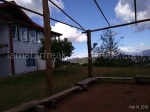
We went to Sagada last 18-20 February. The place is beyond words -breathtaking!
We searched every homestay, hostel and hotel before our trip because we initially want to go over the holiday (Chinese New Year). There are no vacancies, thus we have to move our travel period to Sunday.
We checked Coffee Heritage House (CHH) and besides the good reviews, we’re also drawn by the nice pictures of the place.
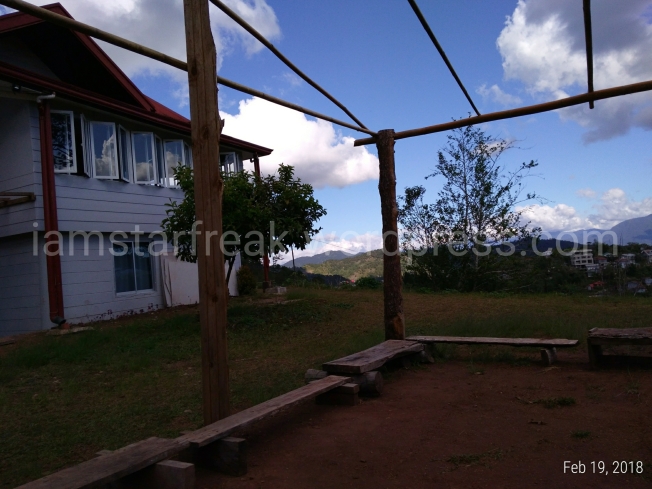
Here’s an honest review, please note that these are just facts that could aid fellow travellers.
1. Reservation/Booking
We searched online but since I don’t want to book using our credit card, we called the mobile number posted in their website. We were able to avail the 25% discount posted for private room. That includes 3 persons (including our 9yo son), while our 7yo stays for free (bed sharing). Booking includes free continental breakfast. We settled 50% downpayment through online bank transfer. Upon our arrival, we were asked to settle the full amount since they were not informed about our downpayment. That’s the time I learned that all their online transactions are handled by Booking.com, so best to keep a copy of your deposit slip or in this case, screenshot of your online transfer. The issue was settled after a while, so no big deal. Price range is around P2000/night for private rooms. P1000/BED for dorm type rooms.
2. Hostel/Room
The hostel/building is cozy. You will find the pantry & lobby in the 2nd floor. There’s a fireplace, which they light up every night. Everything is generally clean. You have to take off your shoes before entering, there are slippers available though. Bonfire area available and can be used at night.

The private room is cement finished, paint on one side of the wall only. Not sure if it’s still in the works. Dont expect too much, there are no room amenities (eg. TV, WIFI, radio, AC, etc.). Just beds and lights, some makeshift (cement finished) table corners where you can place your bags. Toiletries not available, not even hooks for towels inside the room.
Note, this hostel only have shared toilet & baths, regardless if you booked a private room or dorm type rooms. I checked with their reservations officer and she said they have around 10 T&B. We didn’t experience queues since there were few guests that time and we take showers late at night. Hot shower is available, but you have to control and set water volume to low (heater unable to heat high volume of water). No hot water in the tap. T&Bs are generally clean, can be messy at times so be respectful to your fellow guests and clean as you go.
Bed can pass hotel quality, comfortable matress and pillows, sheets are clean. However, we woke up the 3rd day with bedbug bites. My hand’s still swollen and itchy while typing this blog (picture added under customer service).
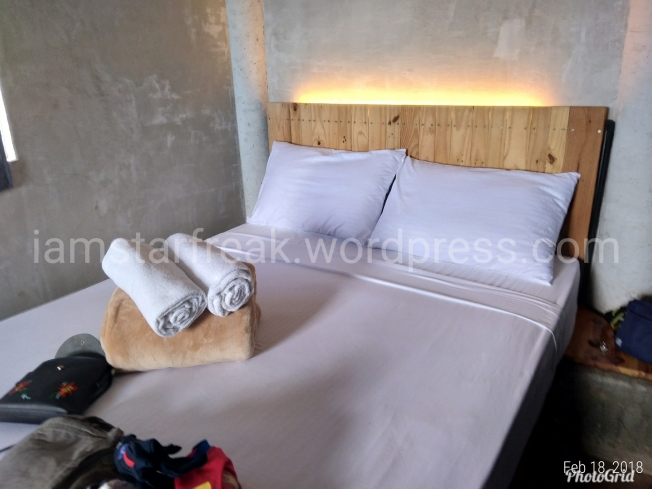
Room can be hot in the morning, unable to check fan availability, you can opt for open windows but it can be dusty when the wind blows hard since the private room windows are ground level. Hard to open windows at night (no screens) cause there are lots of insects, considering this place is surrounded by trees.
3. Location
Far away from the town proper and far means around 20mins away. If you don’t have a car, you’d need to walk from the main road as there are no means of transportation going to the hostel. If you have a car, note that there are rough patches so if you’re driving the “lowered” one, that might be a problem. Main road to hostel is dark, you have to rely to your headlights or lights from the houses at the side of the road. Note: one way, so slow down when passing curved roads. We learned from our tour guide that this is part of the farm-to-market road of the Gloria administration.
This place is perfect if you want to stray away from the city buzz and explore the mountainous side of Sagada. I also observed that it’s way cooler here compared to the town proper. Really quiet and peaceful at night.
Open parking is available around several meters away from the building. If you arrive late at night, flashlights will help since the surroundings are not well-lit or no lights at all.
4. Food
We were dead hungry after our 13-hour trip, so we had lunch first. Menu is limited so if you’re staying for a couple of days, you can opt to go out and try other restaurants. They have all-day breakfast which comes with meat-veggies-black rice. Food tastes fine but a bit pricy running at P220-P250 per order.
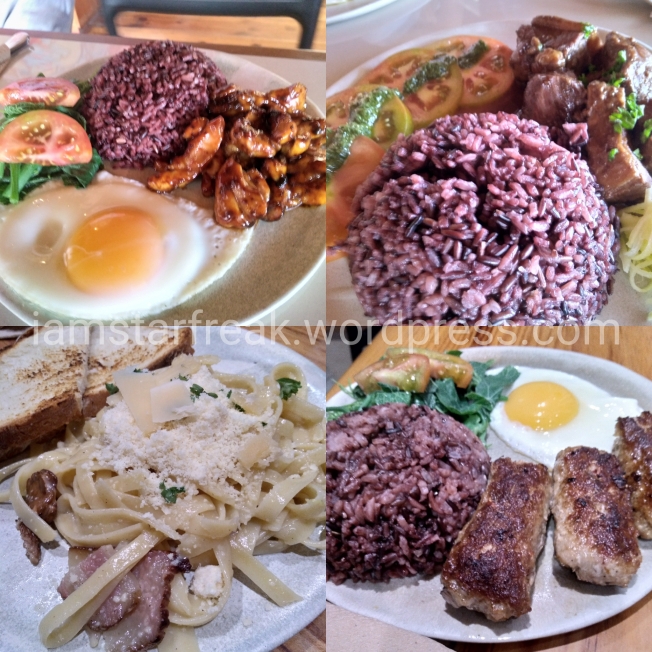
There are welcome drinks too but limited to choice of coffee or mountain tea.
We also tried some of their pasta which comes with toasted bread, price range is the same. Etag carbonara is a must try since they use traditionally preserved meat which is known to the Mountain Province.
Breakfast is free. Continental breakfast includes toasted bread, egg, choice of 2 spread (try their bugnay spread which is made from wild berries). I forgot to take pictures!
If you’re a coffee lover, prepare to splurge P95-P150 for a (small) cup of coffee outside your breakfast set. Pantry also closes 9pm, no more orders after that, keep snacks that you can nibble at wee hours.
5. Customer service.
If you’re looking for hotel type service, this is not the place for you. No room service. No special treatment of that sort. Sometimes, staff won’t even smile at you if they meet you at the corridors. You can say it’s pure accommodation, service is available in the pantry area only. Best to manage your expectations.
Front desk is okay, I cannot say that we had a warm welcome, just so so. When we arrived, no one helped with our bags even though they were joking around by asking the other staff to help my son with his load. Front desk officer helped though when we were about to enter our room. They were able to arrange a simple request and got us a tour guide.
When I feedback about the bedbug bites and showed them my hand as well as my son’s finger, the desk officer apologized but such a drawback to say that “they do not have control over the insect”, which I think can be improved by saying, “but rest assured we will check or clean the room”. After all that is our last day and they will benefit from the feedback.
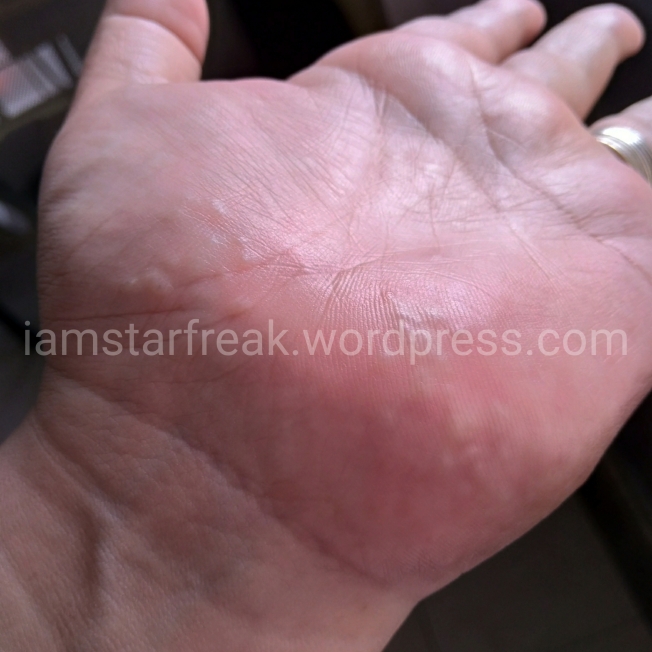
Overall, this hostel is okay in terms of peace and quiet. But customer service can still be improved. Lighting and road condition (rough with chances of “balahaw”) can also be improved in the parking area.
Rating: 3/5
Coffee Heritage House
Sitio Nadatngan, Brgy. Madongo
Sagada 2619 Mt. Province
Philippines